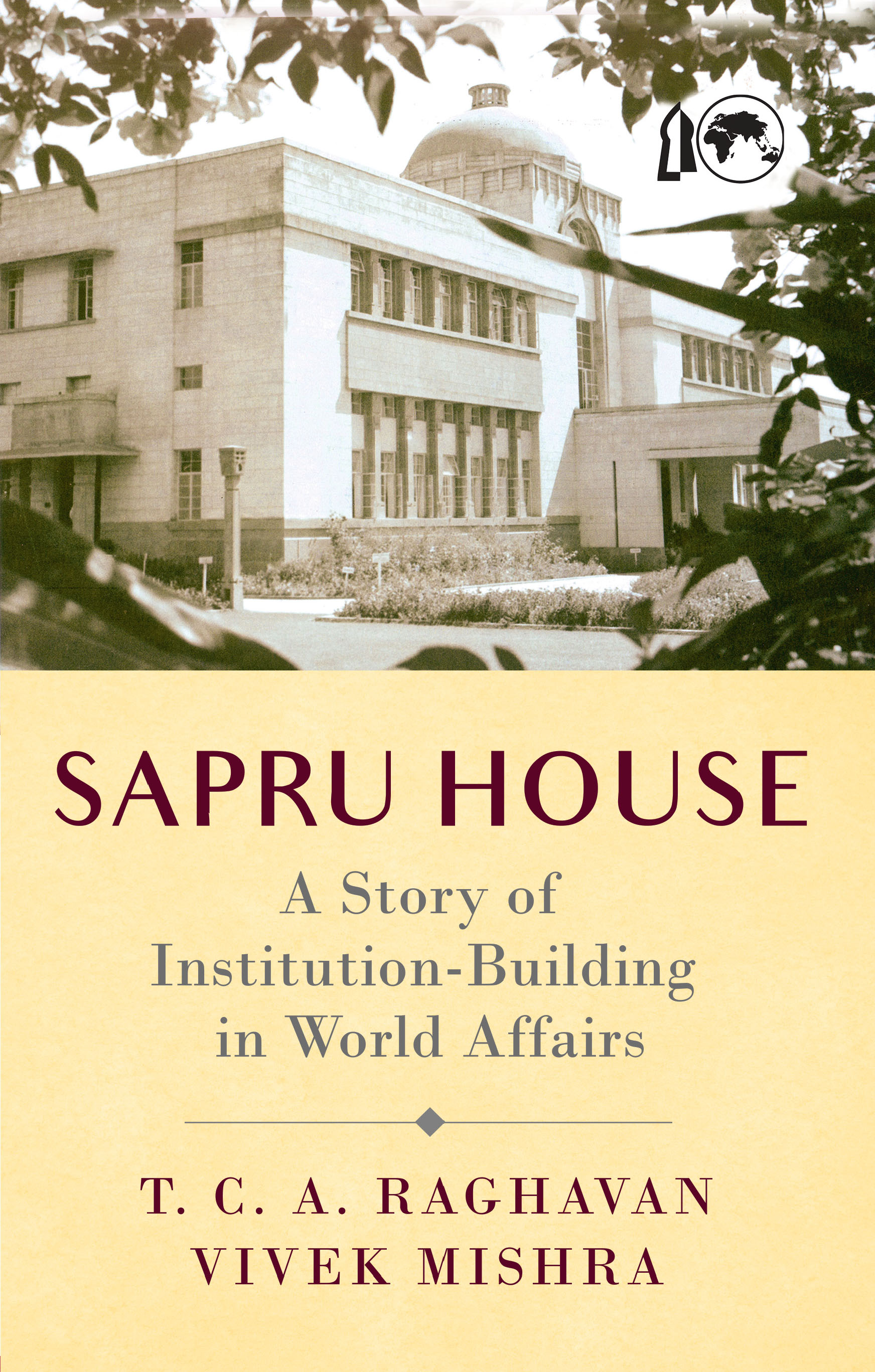Subjects
Recent View(s)
SAPRU HOUSE A Story of Institution-Building in World Affairs
T. C. A. Raghavan and Vivek Mishra
“The history of the ICWA is also the story of how a small fraternity of intellectuals and scholars sought to create and advance a wider public and civil society discourse on foreign policy and international affairs in India. They did this by establishing a world class library, bringing out a highly reputed journal the India Quarterly, fostering research and creating an India-wide fraternity of those interested deeply in India’s engagement with the wider world. This was in so many ways a giant step forward in intellectual decolonisation. Each of these measures was directed towards creating an Indian perspective on world affairs by becoming a non-partisan platform for intellectual exchanges and informed discussion and debate. This is a story therefore both of great intellectual endeavour and of selfless high minded public and national service.”
From the Foreword by M. Venkaiah Naidu, Vice President of India and President,
Indian Council of World Affairs
The Indian Council of World Affairs was established in 1943 amidst intense geopolitical strife in Asia and the world. Its principal founding objective was the advancing of a wider civil society and public discourse on foreign policy and foreign affairs. The Council had landmark achievements from its earliest years, such as the hosting of the Asian Relations Conference a few months before India’s independence. From 1955 onwards, the Council has functioned from Sapru House, its famed headquarters in the heart of India’s capital city.
This volume traces this history from the internal archive of the ICWA and seeks to provide a glimpse of how the serious study of international affairs and debate on foreign policy began in India, and how it was fostered by a consciously non-partisan institution-building process.


 Political Science
Political Science
